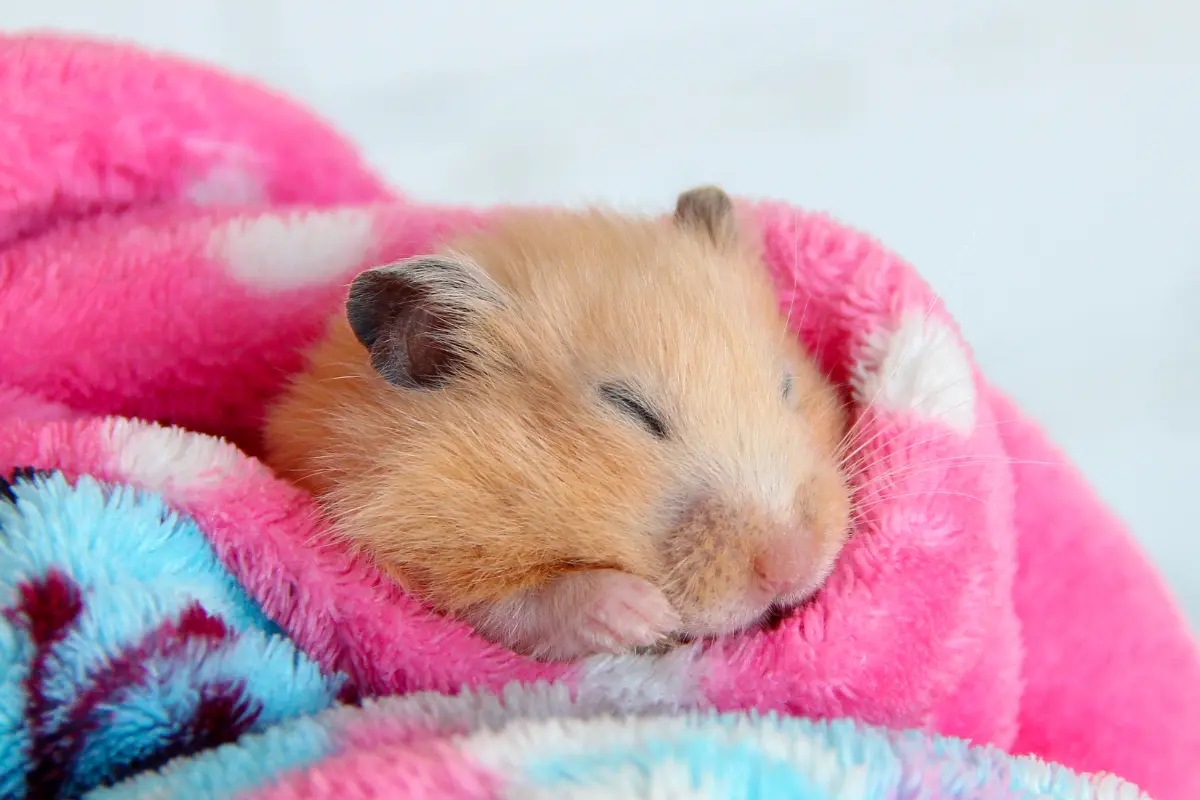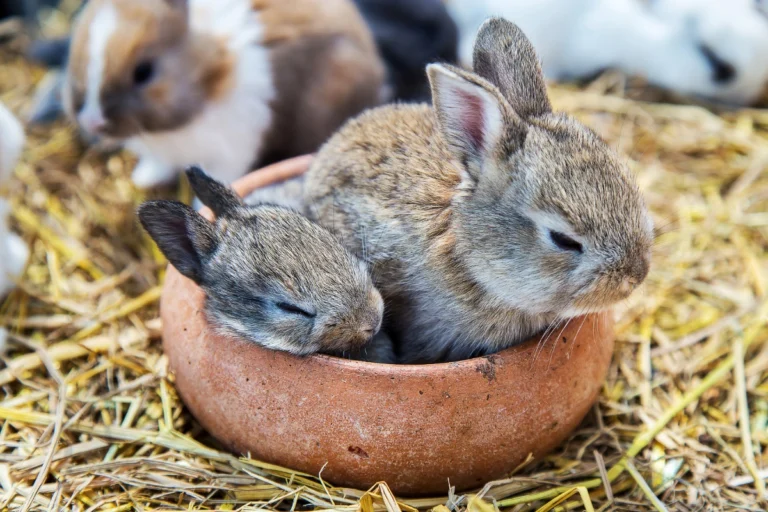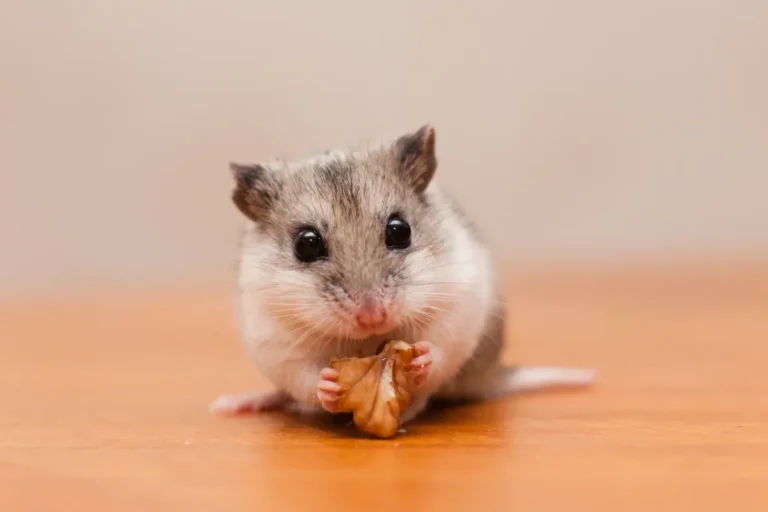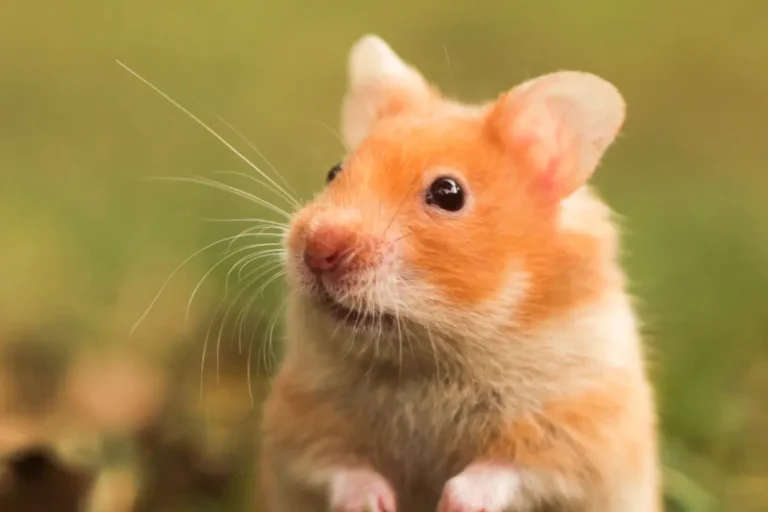Hamster Sleeping Habits Explained: Why Do They Sleep So Much?
Hamsters are adorable, active creatures when they’re awake, but you might notice that they spend a lot of their time sleeping. This can lead new hamster owners to wonder: why do hamsters sleep so much?
Unlike humans, hamsters have unique sleep patterns that allow them to stay healthy and active in their natural habitat. Let’s explore the reasons behind hamsters’ extended sleep hours.
1. Hamsters Are Naturally Nocturnal
One of the main reasons hamsters sleep so much during the day is because they are nocturnal animals.
In the wild, hamsters are active at night, as darkness provides better cover from predators, allowing them to search for food and build their nests in relative safety. Their sleep cycle reflects this survival instinct, meaning they naturally stay awake and active during the nighttime.
- What This Means for Pet Owners: Pet hamsters usually start to wake up in the late evening, become active overnight, and sleep through the day. This sleep pattern can lead to the misconception that hamsters sleep excessively, when they’re actually following their natural rhythms.
2. They Have Polyphasic Sleep Patterns
Hamsters have what’s known as a polyphasic sleep pattern, meaning they sleep in several short bursts throughout 24 hours rather than one long period. In the wild, hamsters rest intermittently to maintain their energy while staying alert to their surroundings.
- How This Looks in Captivity: Your hamster may sleep deeply at one moment, then wake up for a brief time before going back to sleep. In captivity, this pattern may be more noticeable, as you might see your hamster wake briefly even during the day before returning to rest.
3. They Need to Conserve Energy
Hamsters are small animals with high metabolic rates, which means they burn energy quickly. Sleeping helps them conserve energy so they can engage in bursts of high activity when they’re awake.
- Energy Conservation in Hamsters: When hamsters are awake, they’re often highly active, running on wheels, burrowing, or exploring their surroundings. This intense activity requires periods of rest and recovery, which is why hamsters need to sleep so much between active moments.
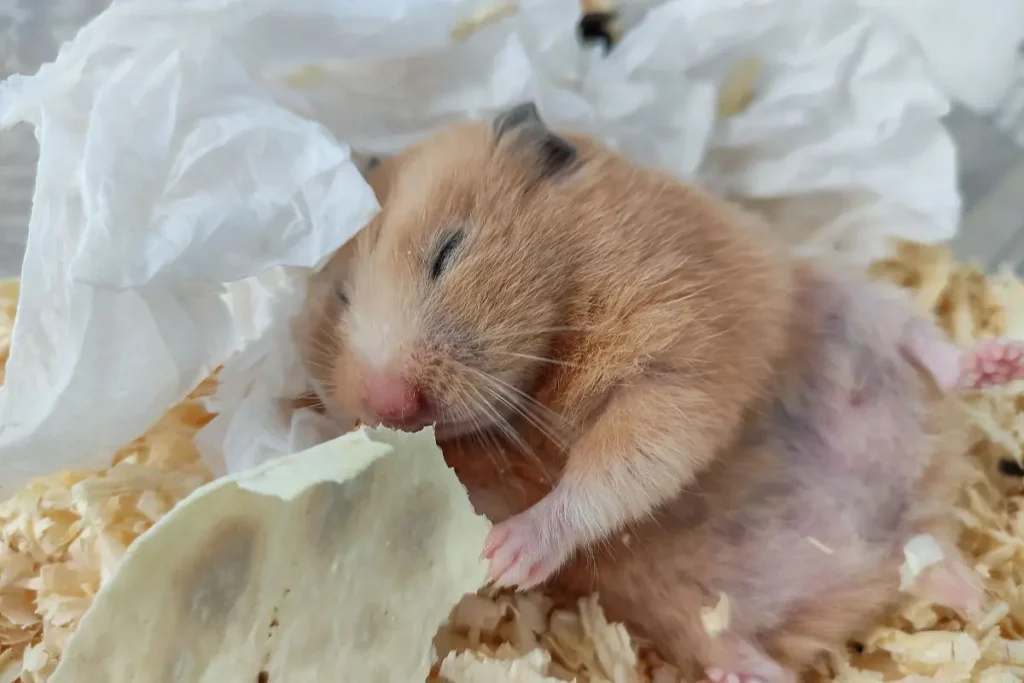
4. Sleep Protects Their Immune System
Just like humans, hamsters rely on adequate sleep to maintain their health. A healthy sleep schedule supports their immune system, helps reduce stress, and keeps their body functioning properly. Sleep-deprived hamsters are more susceptible to illnesses and infections.
- Signs of Healthy Sleep: If your hamster is sleeping soundly during the day and wakes up alert and active at night, it’s a good indicator of overall health. Disruptions to their sleep pattern, on the other hand, could indicate stress or underlying health issues.
5. Temperature Influences Hamster Sleep
Temperature plays a significant role in hamster sleep patterns. Hamsters are sensitive to environmental changes, and cooler temperatures may encourage them to sleep more as a way to conserve warmth and energy.
- Colder Environments: In low temperatures, some hamsters may even enter a state of torpor, a lighter form of hibernation, where their metabolism slows down to conserve energy. This is why it’s important to keep their habitat within a comfortable temperature range of 65–75°F (18–24°C).
- Maintaining Comfort: If you notice your hamster is sleeping much more than usual during winter, check the cage temperature and ensure they have adequate bedding to stay warm.
6. Hamsters Sleep to Avoid Stressful Interactions
Hamsters are naturally solitary animals that may feel stressed by excessive handling or noise during their sleep hours. In a stressful environment, they may adjust by sleeping more or altering their waking hours to avoid daytime disruptions.
- Minimizing Stress for Healthy Sleep: Place your hamster’s cage in a quiet, low-traffic area of your home to allow uninterrupted rest. Limit daytime handling, as frequent disruptions can lead to stress or even disrupt their natural sleep cycle.
7. Age and Health Affect Sleep Patterns
A hamster’s age and health also impact how much they sleep. Young hamsters and older hamsters tend to sleep more as their bodies require additional rest for growth or recovery.
- Young Hamsters: Baby hamsters need more sleep as they grow and develop, so it’s normal to see them rest for long periods.
- Older Hamsters: As hamsters age, they may slow down and require more rest, just like elderly humans or animals. If your older hamster is sleeping more but still wakes up for activity, this is usually a sign of normal aging.
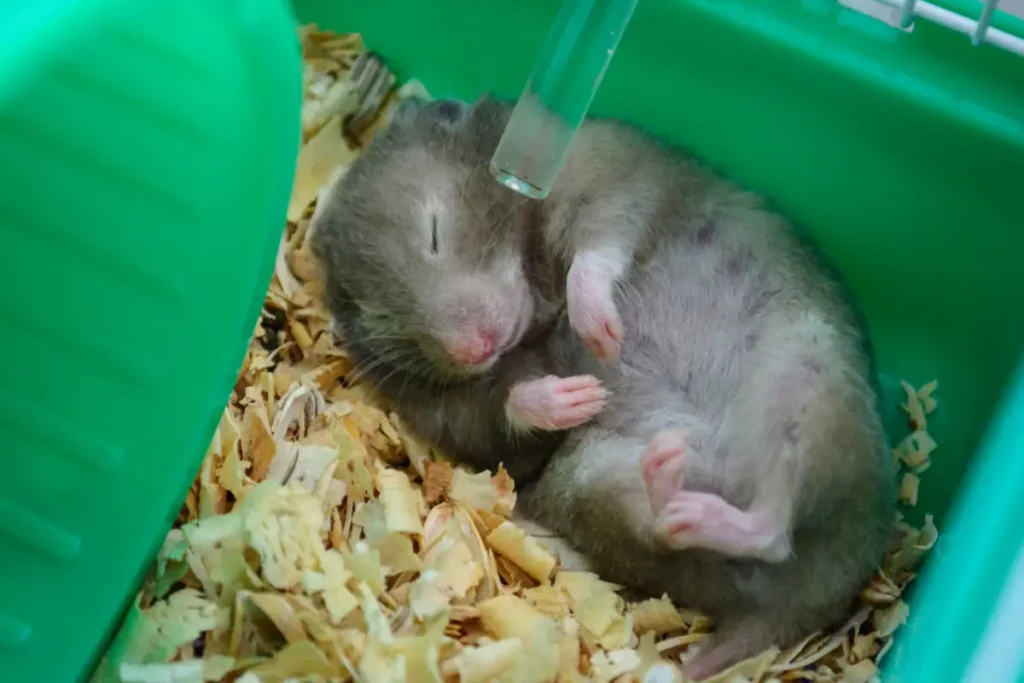
8. Diet and Nutritional Needs
Diet and nutrition can impact a hamster’s energy levels and sleep patterns. A lack of essential nutrients or a diet too high in sugars and fats can lead to lethargy, causing a hamster to sleep more.
- Balanced Diet: Ensure your hamster’s diet includes a high-quality hamster food mix that contains grains, seeds, proteins, and essential vitamins and minerals.
- Avoid Sugary Treats: While it may be tempting to offer sugary treats, they can lead to spikes and crashes in energy. Stick to healthy treats like small bits of vegetables and fruits, given in moderation.
Possible Signs of Excessive Sleep
While it’s common for hamsters to spend much of the day asleep, a noticeable increase in sleep duration (especially during typical waking hours) can be a sign of underlying issues.
Here are some symptoms to watch for to assess if your hamster’s sleep habits are a cause for concern:
- Persistent Lethargy: Hamsters are usually active and curious during their waking hours. If yours seems sluggish or unresponsive, especially at times they’d normally be energetic, it could suggest stress, poor nutrition, or an illness affecting their energy levels.
- Changes in Eating and Drinking: A reduced interest in food or water, extending over a few days, could indicate illness. Hamsters need a regular intake of food and water to stay healthy, so any sudden change in appetite combined with excessive sleep should be taken seriously.
- Respiratory Issues: Symptoms like sneezing, wheezing, or nasal discharge often accompany respiratory infections in hamsters. If these symptoms appear alongside increased sleep, it’s crucial to consult a veterinarian, as respiratory infections can be serious without treatment.
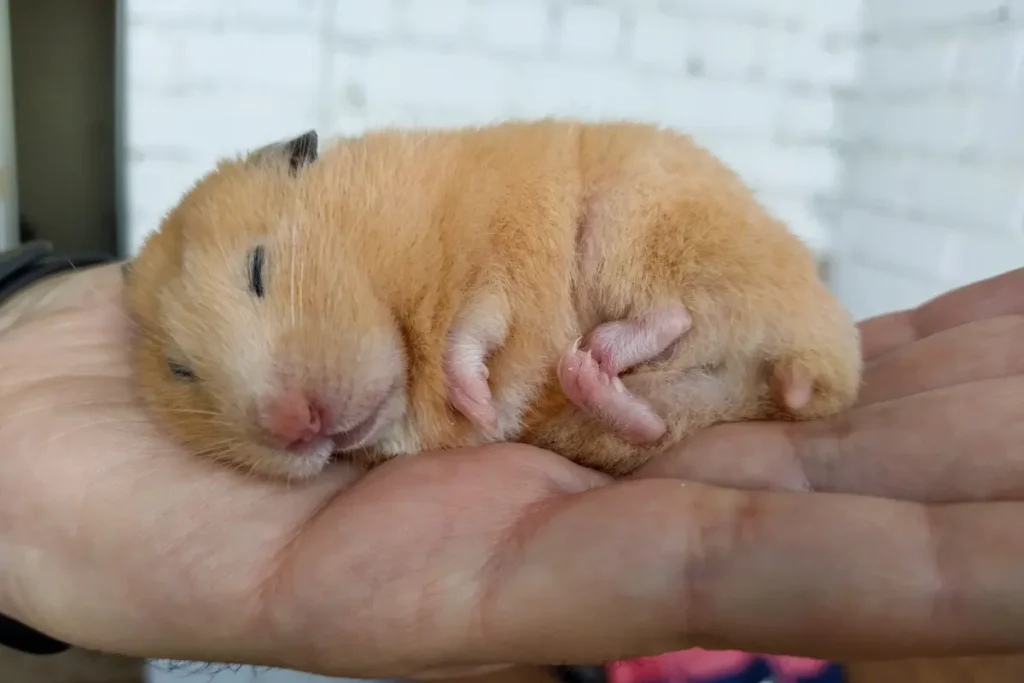
- Unexpected Weight Loss or Weakness: If your hamster appears physically weaker, is losing weight rapidly, or has difficulty moving, these are warning signs. When coupled with excessive sleep, these symptoms can indicate potential health issues such as infections, metabolic problems, or organ issues.
- Temperature Sensitivity: A cold body temperature despite a warm environment could indicate that your hamster’s body isn’t regulating well, possibly due to illness or age. Hamsters typically maintain warmth and prefer to sleep in their nests, so a cold body could mean they’re unwell.
If you observe any of these signs along with increased sleep, scheduling a vet visit is recommended. Even if the symptoms seem mild, a professional evaluation can help rule out potential health risks, ensuring your hamster remains happy and healthy.
Key Takeaway
Hamsters sleep a lot because it’s in their nature. Their nocturnal lifestyle, polyphasic sleep patterns, and energy conservation needs all contribute to their extensive sleep habits.
To support healthy rest, respect their nighttime activity schedule, avoid daytime handling, and provide a quiet environment.
